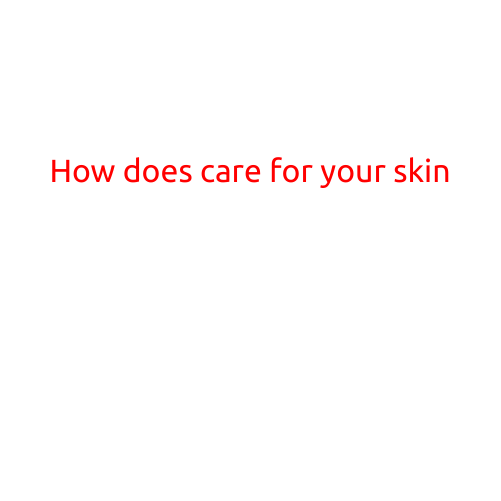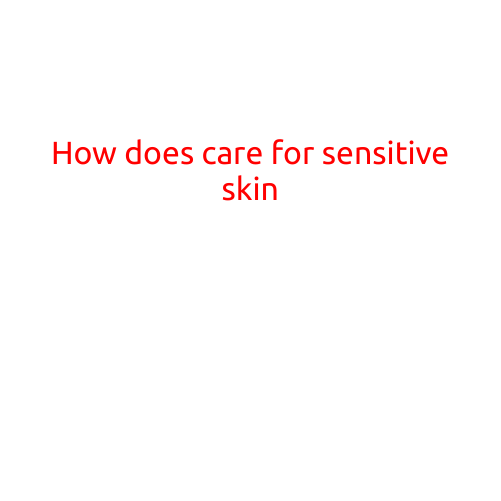
How to Care for Your Skin: A Comprehensive Guide
Caring for your skin is an essential part of maintaining your overall health and wellbeing. A healthy and well-cared-for skin not only looks radiant and youthful, but it also plays a crucial role in protecting your body from external factors and preventing potential health issues. In this article, we will explore the basic principles of skin care, provide tips and tricks for maintaining healthy skin, and offer advice on how to address common skin concerns.
Understanding Your Skin
Before you start a skin care routine, it’s essential to understand your skin type. There are four main skin types:
- Normal skin: Characterized by a balanced pH level, normal skin has no visible pores and is resistant to environmental stressors.
- Dry skin: Dry skin lacks oil and can appear flaky, dull, and tight. It’s often associated with dry air, harsh weather, or aging.
- Oily skin: Oily skin produces excess sebum, leading to a shiny appearance and clogged pores. It’s often caused by hormonal imbalances, genetics, or environmental factors.
- Combination skin: Combination skin has a mix of oily and dry areas, typically on the T-zone (forehead, nose, and chin) and dry areas elsewhere on the face.
Basic Skin Care Routine
A basic skin care routine consists of:
- Cleansing: Remove dirt, oil, and makeup with a gentle cleanser suitable for your skin type.
- Toning: Use a toner to balance your skin’s pH levels and remove any remaining impurities.
- Moisturizing: Apply a moisturizer to lock in hydration and protect your skin from environmental stressors.
- Exfoliating: Exfoliate 1-3 times a week to remove dead skin cells, unclog pores, and improve skin texture.
Additional Tips for Healthy Skin
In addition to your basic skin care routine, incorporate these tips into your daily regimen:
- Stay hydrated: Drink plenty of water (at least 8 cups a day) to keep your skin hydrated from the inside out.
- Protect your skin from the sun: Wear sunscreen with at least SPF 30 daily, even on cloudy days, to prevent premature aging and skin cancer.
- Eat a balanced diet: Include foods rich in antioxidants, vitamins, and minerals, such as berries, leafy greens, and fatty fish, to support skin health.
- Get enough sleep: Aim for 7-8 hours of sleep per night to help your skin regenerate and repair itself.
- Manage stress: High levels of stress can lead to skin issues like acne, rosacea, and eczema. Practice stress-reducing techniques like meditation, yoga, or deep breathing.
Addressing Common Skin Concerns
Dealing with acne, dark spots, or fine lines and wrinkles? Here’s what you can do:
- Acne: Use a gentle, non-comedogenic cleanser, apply a spot treatment containing salicylic acid or benzoyl peroxide, and avoid picking or popping acne.
- Dark spots: Use a product containing vitamin C, niacinamide, or hydroquinone to help lighten dark spots and hyperpigmentation.
- Fine lines and wrinkles: Use a retinol or peptide-rich product, apply sunscreen daily, and consider dermal fillers or Botox for more severe cases.
Conclusion
Skin care is a lifelong commitment, but with a basic understanding of your skin type, a consistent routine, and additional tips and tricks, you can achieve healthy, radiant skin. Remember to stay patient, as it may take time to see results, and always consult with a dermatologist if you have persistent skin concerns. By taking care of your skin, you’re investing in your overall health and wellbeing – and that’s priceless.





